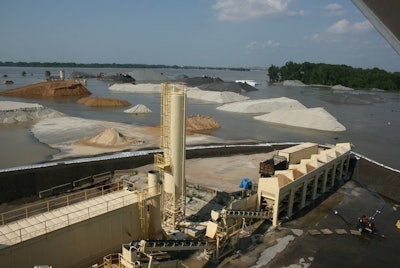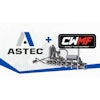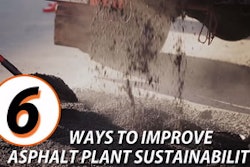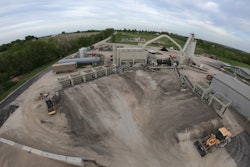
Asphalt plants have long been deemed as bad neighbors due to the noise and level of “pollution” people seem to think these businesses create. Add to that the growing need to be more sustainable in every aspect of your business and plant owners are facing some huge challenges ahead to make their operations seem more “green.”
While many plant owners may be reluctant to invest in sustainability, there are some things you can implement today that will immediately improve your plants efforts to become more sustainable.
1. Education
It all starts with education. Asphalt plants need to make sustainability something real and tangible. Work hard with your crew to help them understand that sustainability is more than a buzzword. You need to work to educate employees on what your goals are so they can help the company achieve them.
2. Use Industry Resources
The asphalt industry has several tools that can help pant managers see what impact their operations have on the environment. The National Asphalt Pavement Association’s (NAPA) Greenhouse Gas Calculator is a good place to start to better understand the impact of an asphalt plant on the environment. Clearly the single largest contributor to CO2 emissions is the fuel consumed by the plant at the burner tip and hot oil heater.
However, the tool also calculates the greenhouse gas emissions related to asphalt pavement manufacturing gate to gate as CO2 emissions. It also calculates emission offset credits for recycling and some fuel use.
What’s even better is the calculator includes a gauge to help identify the sweet spot for production where you’re not wasting fuel or under producing because you’re trying to be environmentally conscious.
3. Improve Plant Efficiency
Every asphalt plant can improve their efficiency and there are some low-hanging and relatively hassle-free improvements that plant owners can implement that will immediately improve efficiencies and therefore the sustainability of the plant.
Repair or replacement of plant insulation is something that can be completed quickly and will have a significant impact on the amount of energy needed to operate your plant. Uninsulated asphalt and hot-oil lines, flanges and jumpers require significantly more energy to operate than when they are properly insulated.
Tuning both the drum and hot-oil burner to ensure complete combustion and ensuring liquid fuels are at the proper viscosity or that gas fuels are at the right pressure will also reduce energy demand.
4. Eliminate Waste
Schedule production and operate the plant to limit the amount of waste generated at the plant. Reductions in raw materials used (whether it is aggregate and asphalt, burner fuel, or equipment fuel) means plant owners have to buy less to produce the same amount of material. This savings should go directly to the bottom line for any producer. Accurate orders, limiting the number of mix changes and knowing plant timing will all reduce waste generated every day you produce asphalt mixtures.
5. Invest in Technology
Automation can also help with improving plant sustainability as equipment which monitors real-time burner fuel usage and knowledge of appropriate fuel use for the conditions the plant is operating under can indicate when plant adjustments or maintenance may be required.
Properly calibrated plants (plant timings, temperature thermocouples, binder content, weigh bridges, etc.) will also help reduce the waste generated at plant start-up and shutdown and provide proper temperature control during production.
6. No Idle Time
Finally, institute a no-idling policy for all equipment on site, plant loaders and delivery trucks. Any reduction in the energy consumed will reduce the plant’s carbon footprint and improve sustainability.
Steps can be taken now to better understand sustainability and improve how our plants operate, but plant owners should also be focused on future sustainability goals for their company. Owners should become engaged in the process which will shape how sustainability requirements impact our industry, and implement sustainable practices at your business to help you be prepared for when this happens in the future.




















